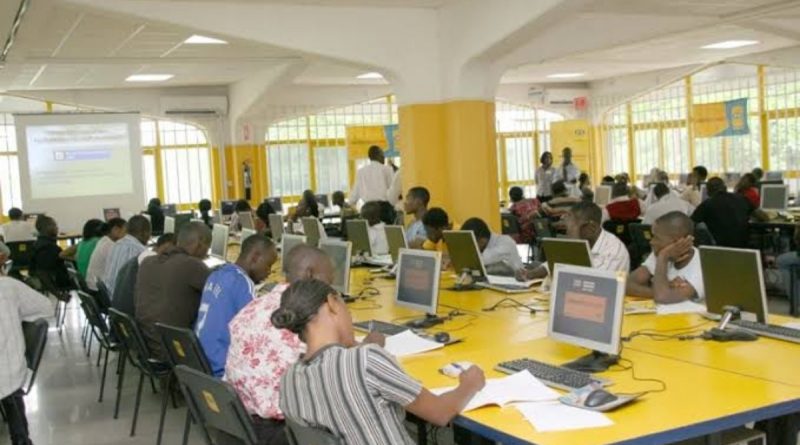Nigerian Universities and the Imperative of E-Learning
By Inyene Ibanga
Recently, the Academic Staff Union of Universities (ASUU) suspended the nine-month old industrial action it had been on following its dispute with the Federal Government. Only a few Nigerians could have imagined that the strike would become the longest and most disruptive in the history of labour unrests in the country’s universities.
ASUU announced that its decision to return to the classroom was made on the basis of certain agreements it reached with the Federal Government.
The indefinite action commenced in March 23, 2020, after ASUU’s two-week warning strike, ended without the resolution of some of the Union’s disagreements with the Federal Government.
READ ALSO: When will public universities embrace e-learning?
Also, the closure of Nigeria’s public universities due to the lecturers’ strike had been further compounded by the government’s shut down of schools in the wake of the COVID-19 pandemic, which broke out at about the same period.
Public universities happen to be the worst hit by the protracted strike, as students have lost an entire academic year for no fault of theirs but rather due to the lack sincerity of purpose on the part of the managers of the public university system and the government.
As universities reopen for classes, there seems to be another looming crisis in the horizon. This is apart from the likely consequences, should government fail to fulfill the agreements it has entered into with the university lecturers.
Currently, fears are rife that universities do not have the capacity and resources to handle the large population of students returning to campus, especially considering the devastating effect of the new variant of the coronavirus in Nigeria.
Most public universities are battling with the lack of adequate lecture halls and hostels to accommodate the ever-increasing number of students. Lecture halls are overcrowded and pose serious health risk to the students and the possibility of the rapid spread of the coronavirus.
With the prevailing health situation, physical classroom lectures are no longer feasible, as social distancing must be observed in adherence to the guidelines of health authorities.
As a result, some universities are seriously considering the establishment of a virtual learning system or e-learning to create learning communities for online classes and the delivery of lectures to their teeming student populations in the bid to reduce physical contact to the barest minimum.
Unfortunately, the COVID-19 pandemic has equally exposed the lack of commitment of many Nigerian universities to providing facilities to their faculties and students, which are in line with global standards, to drive research and development.
The Universities of Ilorin, Lagos, Port Harcourt and Jos are among those already planning to launch a hybrid of virtual and in-person learning platforms. This involves a combination of physical and online classes, through which teachings are conducted. But how many universities have the facilities and infrastructure to drive virtual learning at this point, as the challenges are daunting?
Beyond the challenge of the intensive capital requirement, very many lecturers do not possess ICT skills necessary to operate the e-learning platforms, and there is the lack of adequate broadband width, including the non-availability of ample data provisioning and high-speed internet service for the participants in virtual learning.
Adequate funding must be available for the procurement of efficient and secure hardware (servers, routers, etc.), software (learning management systems, etc.) and system support teams (administrative and technical).
There is a serious need for development of the personnel that would operate the technology around e-learning and to build the capacity of university staff to keep them abreast of digital tools and inventions to enhance practical learning.
It is noteworthy that the National Information Technology Development Agency (NITDA) trained over 150,000 Nigerians on Information Communication Technology (ICT) in 2020.
According to the director-general of the agency, Kashifu Abdullai, majority of the trainees were tutored online and through social media platforms to equip them with the skills to enhance their socio-economic wellbeing, to enable Nigerians gain ICT knowledge in order to attain the sustainable development goals.
As part of its mandate to expand knowledge in ICT, the agency is positioned at the forefront of promoting educational technology development to digitalise all forms of learning, as well as facilitate a functional digital lifestyle in academic and non-academic institutions.
If NITDA could successfully train as many as 150,000 people in ICT within the last one year, then organising similar trainings for members of the academia would be worth all the resources channeled in that direction. The individual lecturers and their respective universities would be the better for it.
I have a strong belief that the starting point for efficient implementation and delivery of e-learning in Nigerian universities should be a massive training of academics to equip them with cutting edge digital skills.
So, it is important that NITDA provides technical support in terms of expertise and guidance to the universities towards setting up well-structured, reliable and secure e-learning platforms for the enhanced production of up-to-date content for the students who are the end-users.
As a matter of urgency, the situation calls for the collaborative engagement of the Ministry of Communications and Digital Economy and its Science and Technology counterpart to formulate a policy mandating every university to establish functional ICT training centres on their campuses.
These ICT training centres will not only serve to produce a steady pool of competent manpower, but will also help provide platforms for lecturers to constantly develop and update their digital skills.
In fact, stakeholders in the university system need to demonstrate a sincere commitment backed with practical actions to acquire reliable hardware, software and experienced and versatile personnel to facilitate e-learning.
Since the rampaging COVID-19 pandemic has disrupted every aspect of life and altered the process of knowledge acquisition/sharing, stakeholders are left with only one choice: Begin to undertake small steps towards implementing e-learning at all levels of education.
Hopefully, there is always a chance to improve and make adjustments as we march towards our goal of institutionalising the new normal of e-learning as a catalyst for national development.
Inyene Ibanga writes from Wuye District Abuja.
For Advert Placement, Sponsorship, support, Article submission, suggestion, etc, Contact us: info@theabusites.com, +2349015751816 (WhatsApp)








